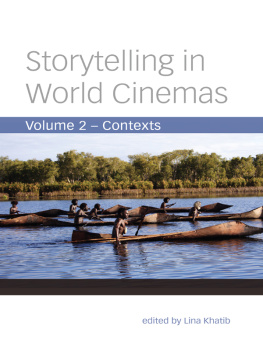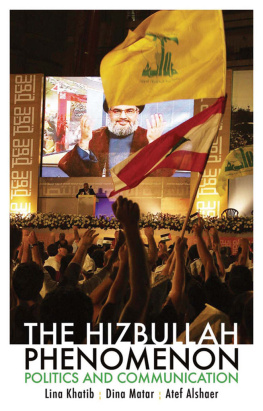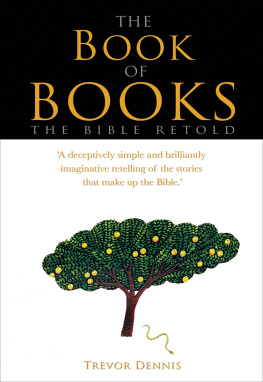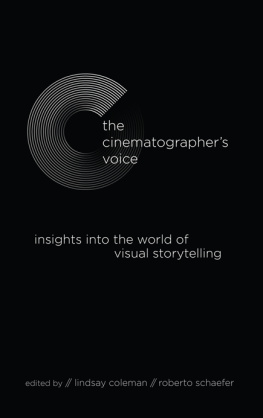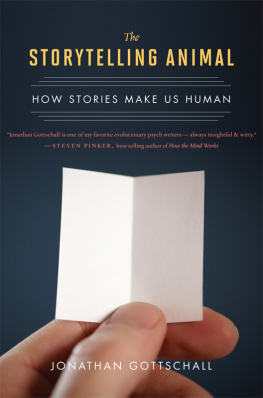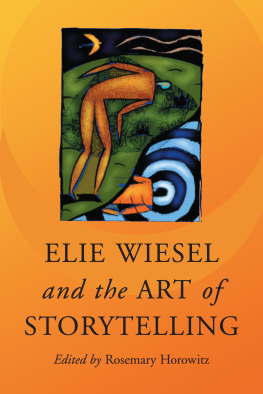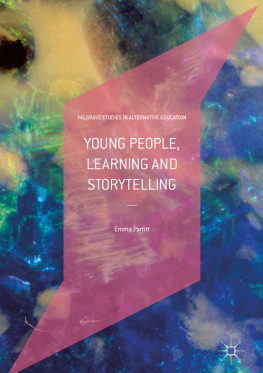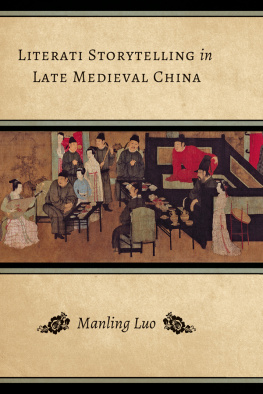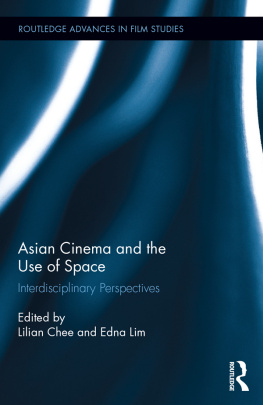Storytelling in World Cinemas
Volume Two: Contexts
Edited by Lina Khatib
A Wallflower Press Book
Published by
Columbia University Press
Publishers Since 1893
New York Chichester, West Sussex
cup.columbia.edu
Copyright Lina Khatib 2013
All rights reserved.
E-ISBN 978-0-231-85025-4
Wallflower Press is a registered trademark of Columbia University Press
A complete CIP record is available from the Library of Congress
ISBN 978-0-231-16336-1 (cloth : alk. paper)
ISBN 978-0-231-16337-8 (pbk. : alk. paper)
ISBN 978-0-231-85025-4 (e-book)
A Columbia University Press E-book.
CUP would be pleased to hear about your reading experience with this e-book at .
Design by Elsa Mathern
Contents
Acknowledgments
The idea behind this book was inspired by an essay written by my former student Celia Sommerstein on the influence that traditional storytelling strategies in Korean theatre had on those in Korean cinema. This led me to organisie a symposium entitled The Form and Context of Storytelling in World Cinemas in March 2006, supported by the University of Londons Screen Studies Group. I would like to thank Mandy Merck and Laura Mulvey for their encouragement and help with making the symposium happen, and for paving the way for this book to be born. I would also like to thank Yoram Allon for being a wonderful editor and the contributors to the book for their hard work and patience.
This book is dedicated to the late Robert Dash whose legacy continues through this work.
Isabel Arredondo is Professor of Spanish at SUNY Plattsburgh. She is the author of De brujos y naguales: La Guatemala imaginaria de Miguel ngel Asturias (1997), Palabra de Mujer: Historia oral de las directoras de cine mexicanas 19881994 (2001) and Motherhood in Mexican Cinema 19411991: The Transformation of Femininity on Screen (2013). She specializes in Latin American womens film and silent film and her current research also includes Latin American Super 8 films.
Yifen T. Beus received her PhD in comparative literature from Indiana University, Bloomington, and is currently Professor of International Cultural Studies at Brigham Young UniversityHawaii. Her interests include de-Westernising storytelling, self-reflexivity and deterritorialisation in cinema. Her works have appeared in such journals as Nineteenth-Century French Studies, Quarterly Review of Film and Video and African Cultural Studies.
Shohini Chaudhuri is Senior Lecturer in Contemporary Writing and Film at the University of Essex. She has published two books Contemporary World Cinema: Europe, the Middle East, East Asia and South Asia (2005) and Feminist Film Theorists (2006) and articles on contemporary cinema in journals such as Screen, Camera Obscura and South Asian Popular Culture. Her most recent work deals with atrocity and the ethics of spectatorship in twenty-first-century cinema.
Sue Clayton is Programme Director of MASTFiR, an MA in Screenwriting for Film and Television (Retreat Programme) at Royal Holloway, University of London, and has published in a number of books and journals including New Writing, New Cinemas and the Journal of Media Practice. She has written and directed over twenty award-winning feature films, television documentaries and campaign films, including The Disappearance of Finbar (1996) starring Jonathan Rhys Meyers. Most recently she made the award-winning Hamedullah: The Road Home (2011) about a young refugee deported back to Afghanistan, which won Best Documentary at the London Independent Film Festival. She has collaborated on a play, Mazloom (2012), on this theme, and is in development on Nowhere to Hide, a feature film on the same topic.
Robert C. Dash was a professor in politics at Willamette University and an associate editor of the journal Latin American Perspectives. He published in the areas of Latin American and Latino politics and culture.
Anna Dempsey is Associate Professor of Art History at the University of Mass achusetts, Dartmouth. She has published articles on cinematic public space, architecture and gender in several journals. An essay on contemporary Islamic cinema is included in Images of Children and Childhood in the Middle East, a special issue of Comparative Studies of South Asia, Africa and the Middle East (2012). She is currently writing a book titled Working Women Artists: Images of Domesticity and the Construction of American Modernism, 18801930.
Dijana Jelaa is a doctoral candidate in Communication at the University of Massachusetts, Amherst. She holds an MA in Feminist Theory and Film from New York University. Her recent publications include works that appeared in Communication Studies and Universals and Contrasts. Dijanas current research interests revolve around the convergence of affect and trauma theories, especially as they pertain to cinema and its insight into the workings of post-traumatic memory.
Hester Joyce is a Senior Lecturer in Media Arts at La Trobe University, Melbourne. She is co-author of New Zealand Film and Television: Institution, Industry and Cultural Change (2011) and a contributor to the edited anthology Making Film and Television Histories (2011). Her research interests include arts policy, creative arts practice and screenwriting. She is also a credited stage and screen actor.
Lina Khatib heads the Program on Arab Reform and Democracy at Stanford Universitys Center on Democracy, Development, and the Rule of Law. She is the author of Filming the Modern Middle East: Politics in the Cinemas of Hollywood and the Arab World (2006), Lebanese Cinema: Imagining the Civil War and Beyond (2008), and Image Politics in the Middle East: The Role of the Visual in Political Struggle (2012). She is a founding co-editor of the Middle East Journal of Culture and Communication.
Nam Lee is Assistant Professor in Film Studies, Dodge College of Film and Media Arts at Chapman University in Orange, California. She has published book reviews and articles in Film Quarterly, Quarterly Review of Film and Video, Asian Cinema and Film International. She also organises and programs the annual Busan West Asian Film Festival at Chapman University.
Willow G. Mullins is an adjunct professor at Washington University in St. Louis. She is the author of Felt (2009). Her research interests are centred on material culture, commodification between global cultures and the effects of colonialism and postcolonialism on narrative. She is currently working on a book on Western narratives of consumption in the global craft marketplace.
Konrad Ng is Director of the Smithsonian Institutions Asian Pacific American Center and an assistant professor in the Academy for Creative Media at the University of Hawaii-Mnoa. His professional and scholarly work explores the cultural politics of Asian and Asian American cinema and digital media.
Anjali Gera Roy is a Professor in the Department of Humanities and Social Sciences at the Indian Institute of Technology Kharagpur. She has published more than eighty essays on literary, film and cultural studies. Her recent publications include Bhangra Moves: From Ludhiana to London and Beyond (2010), Partitioned Lives: Narratives of Home, Displacement and Resettlement

